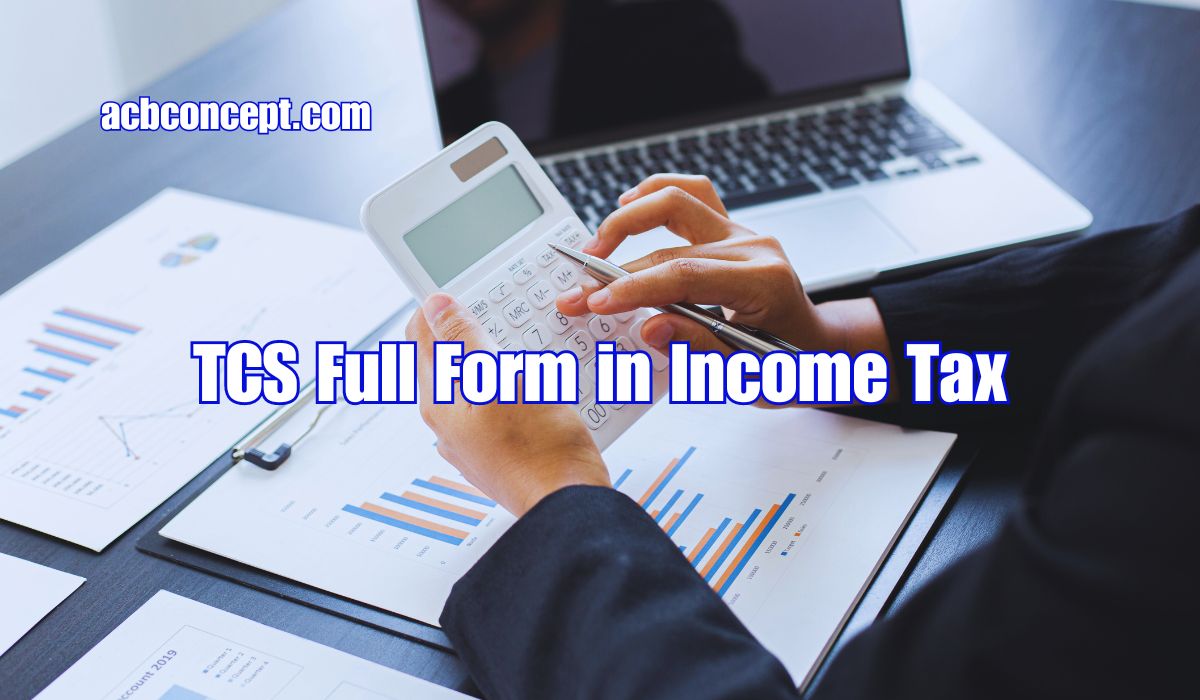
What is the full form of TCS in Income Tax?
- by Pankaj
The TCS Full Form in Income Tax is Tax Collected at Source. This term is integral to the Indian income tax framework, which employs a dual system for tax collection: Tax Deducted at Source (TDS) and Tax Collected at Source (TCS). While TDS pertains to income from salaries, interest, and rent, TCS focuses specifically on certain transactions involving the sale of goods and services. This article delves into the specifics of TCS, including its purpose, scope, rates, and the information required from taxpayers.
What is TCS?
Tax Collected at Source (TCS) refers to the system where sellers are required to collect tax from buyers at the point of sale. This system, governed by Section 206C of the Income Tax Act, 1961, ensures that taxes are collected on transactions involving certain goods and services. Unlike TDS, which is applicable to a broad range of income types, TCS is specifically applied to transactions where goods are sold above a specified threshold.
Priorities for TCS Implementation
The implementation of TCS serves several purposes:
- Enhancing Government Cash Flow: By collecting tax at the time of transaction, the government improves its cash flow and ensures more immediate revenue collection.
- Improving Tax Compliance: TCS is aimed at high-value transactions, which helps in promoting better compliance with tax regulations.
- Reducing Tax Evasion: Since the tax is collected at the point of sale, it discourages buyers from underreporting transaction values, thereby reducing tax avoidance.
Sale of Specific Items
TCS is applicable to the sale of specific items that exceed a financial year threshold. For most commodities, the threshold is set at Rs. 50,000,000. However, there are certain exceptions where lower thresholds apply. This ensures that high-value transactions are adequately taxed, contributing to overall tax revenue.
TCS Rates
The rates for TCS vary depending on the nature of the transaction and the taxpayer. Typically, the rates range from 0.1% to 20%, with most transactions falling within the range of 0.1% to 5%. For the most current TCS rates, taxpayers can visit the Income Tax Department’s official website at Income Tax India.
In conclusion, the TCS Full Form in Income Tax, Tax Collected at Source, plays a crucial role in the Indian tax system by ensuring that tax is collected on specific high-value transactions at the point of sale. Understanding TCS helps in comprehending how different transactions are taxed and aids in better compliance with tax regulations. For the latest updates and detailed information on TCS rates, taxpayers should refer to the Income Tax Department’s official resources.
The TCS Full Form in Income Tax is Tax Collected at Source. This term is integral to the Indian income tax framework, which employs a dual system for tax collection: Tax Deducted at Source (TDS) and Tax Collected at Source (TCS). While TDS pertains to income from salaries, interest, and rent, TCS focuses specifically on…
